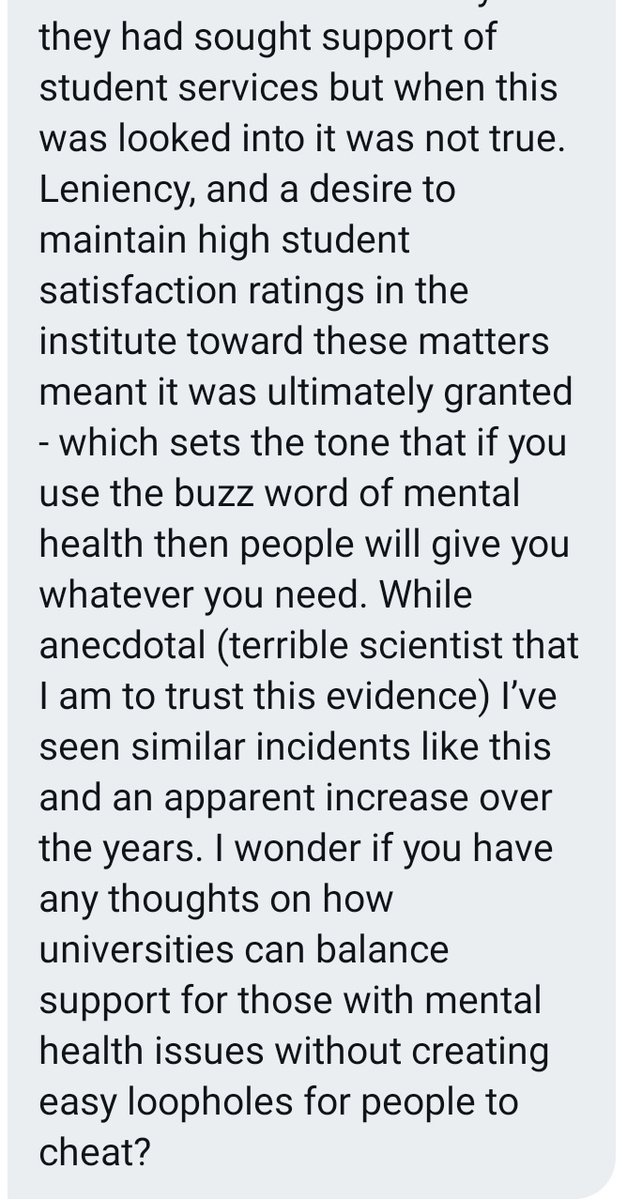
A list of my #mentalhealth posters so far to highlight what I do for new followers. I make posters to raise awareness of issues people face in academia. They are all free to distribute. (1): Mental Health During your PhD - what you might experience #phdchat #AcademicTwitter (1/n) 
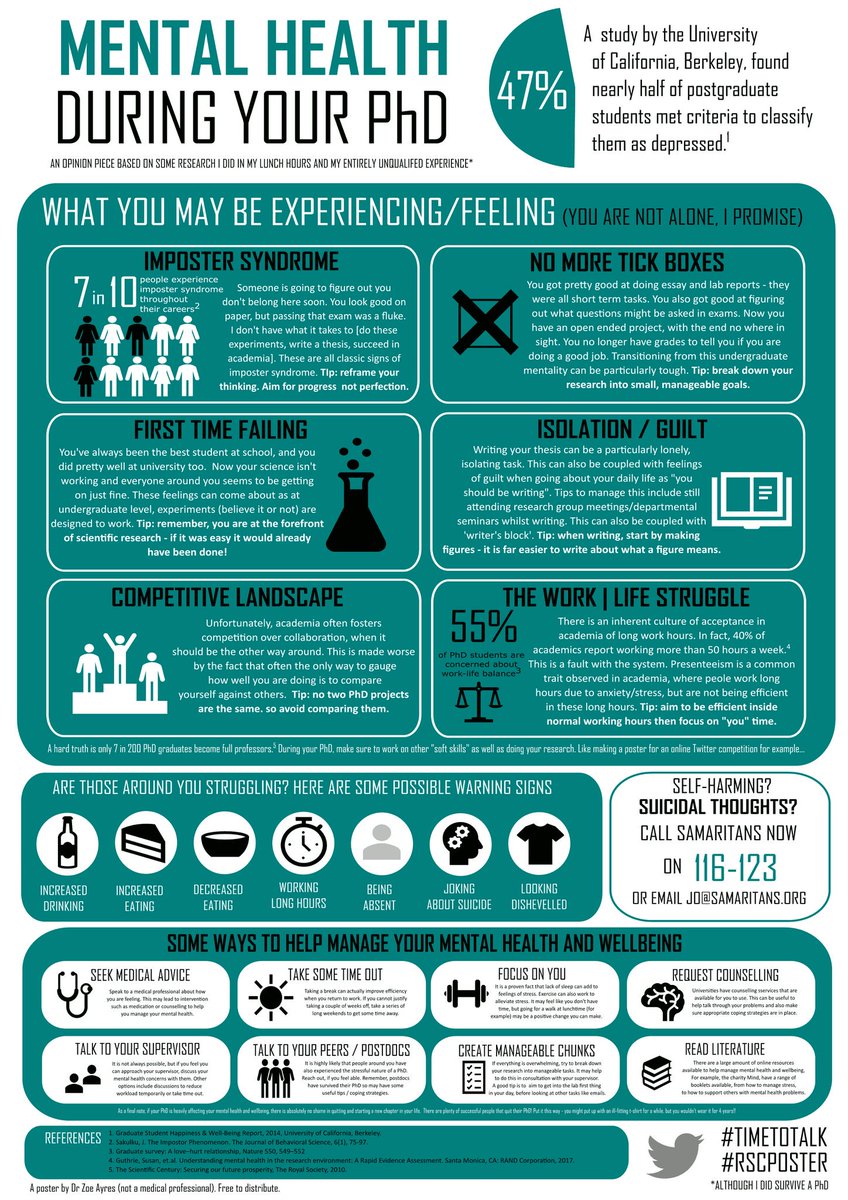
(2) The toxic mix during a PhD - the stressors, the strains...what might make management of your #MentalHealth more difficult #phdlife 
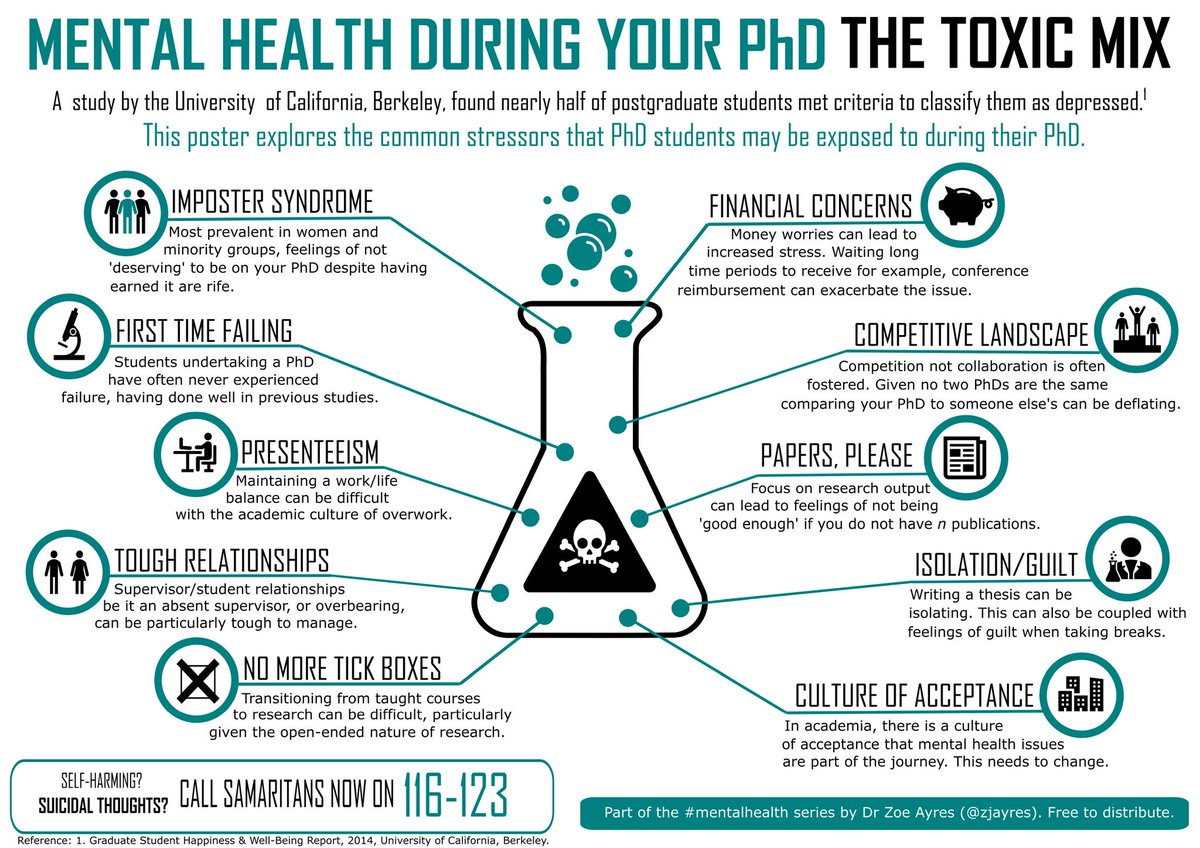
(3) Curated from comments, things didn't have the space to cover, from my followers on difficult situations that they face that contributes to poor mental health 

(4) An A5 flyer for boards to help raise awareness of how to manage mental health and wellbeing during PhD rather than a massive poster #AcademicChatter 

(5) What can the academy actually do? What are the active steps to make #Mentalhealth better for PhD students? #phdlife, because I'm sick of the narrative that it's the students problem, and the students problem only 

(6) Shining a spotlight on imposter syndrome, on what we can do, what our peers can do to support, role the PI plays and what universities can do to support #AcademicTwitter 
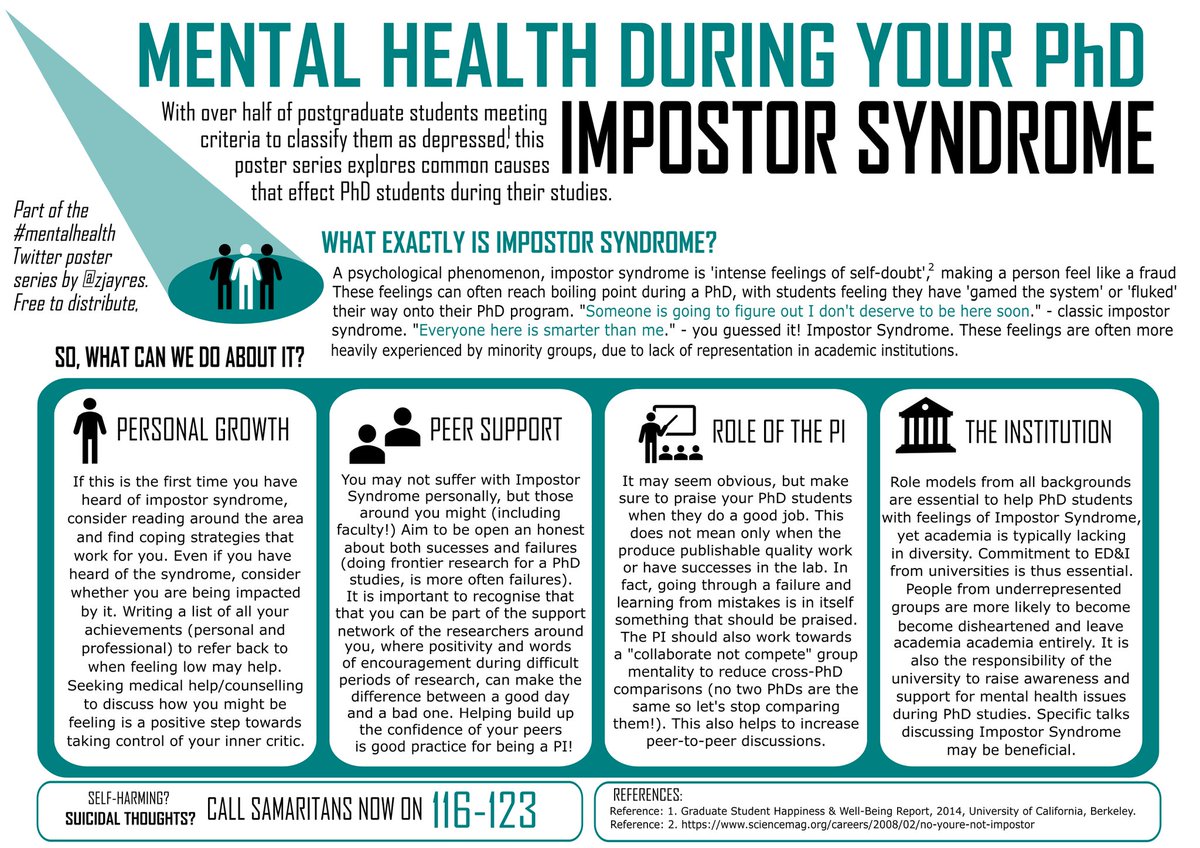
(7) A foray into the fact that #Mentalhealth issues do not stop at PhD level. The strains and stressors continue, and we like to say, well if you love research, then just crack on. This is not ok. #AcademicChatter #AcademicTwitter 
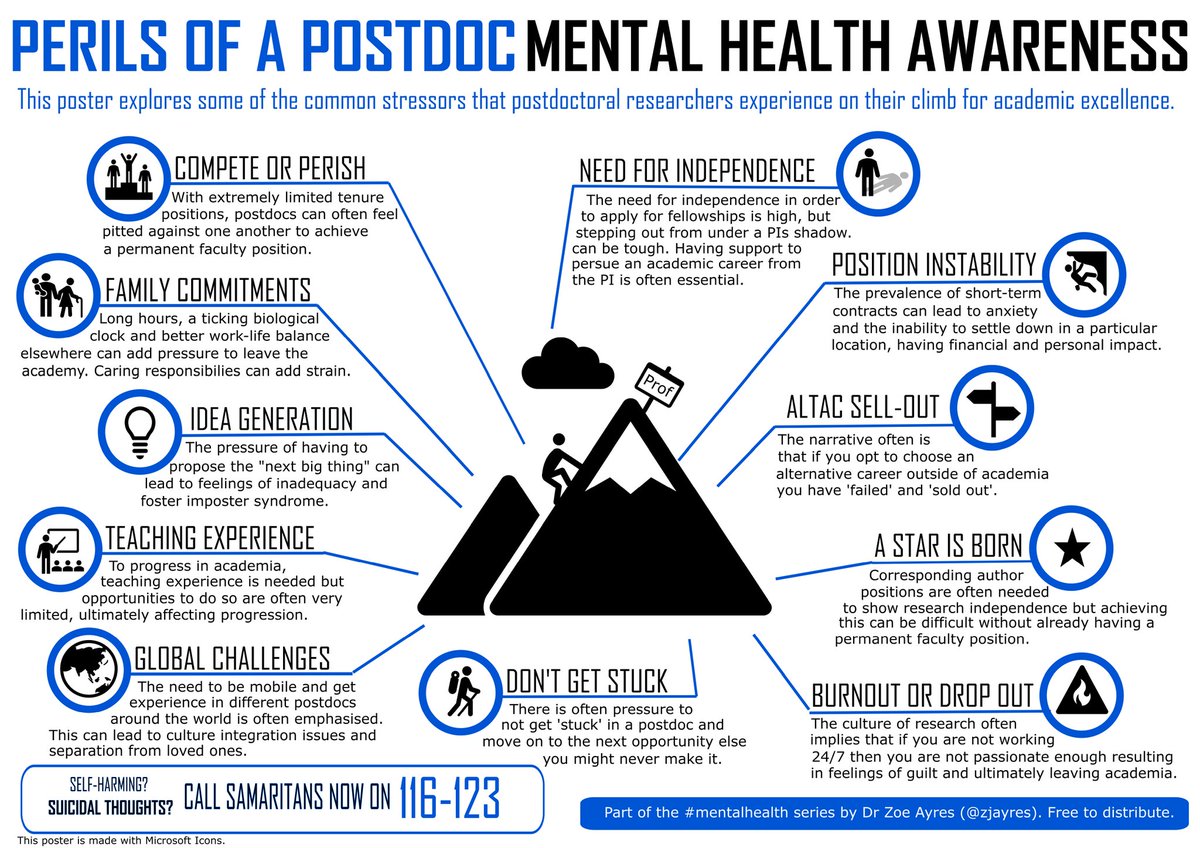
I have major plans for mental health month in May, which I'm excited about. I'm also now starting to do talks on "Mental Health During a PhD".
If you don't see a topic covered and want it made into a poster, feel free to DM or comment. Posters can be given to you in an editable format if you DM me, as well as at a higher resolution. Let's get talking about #Mentalhealth during PhD studies and beyond.
Why do I do this work? Because although I finished my PhD, I want to make sure that the next gen of PhD students have more visible resources available.
(8) Adding "Work/Life balance" to the list of #mentalhealth poster resources. Looking after ourselves can often make us more productive in the long run, despite sometimes feeling that we must work 24/7 🌱 Some handy tips 👇for striving for balance. #AcademicChatter #phdchat 
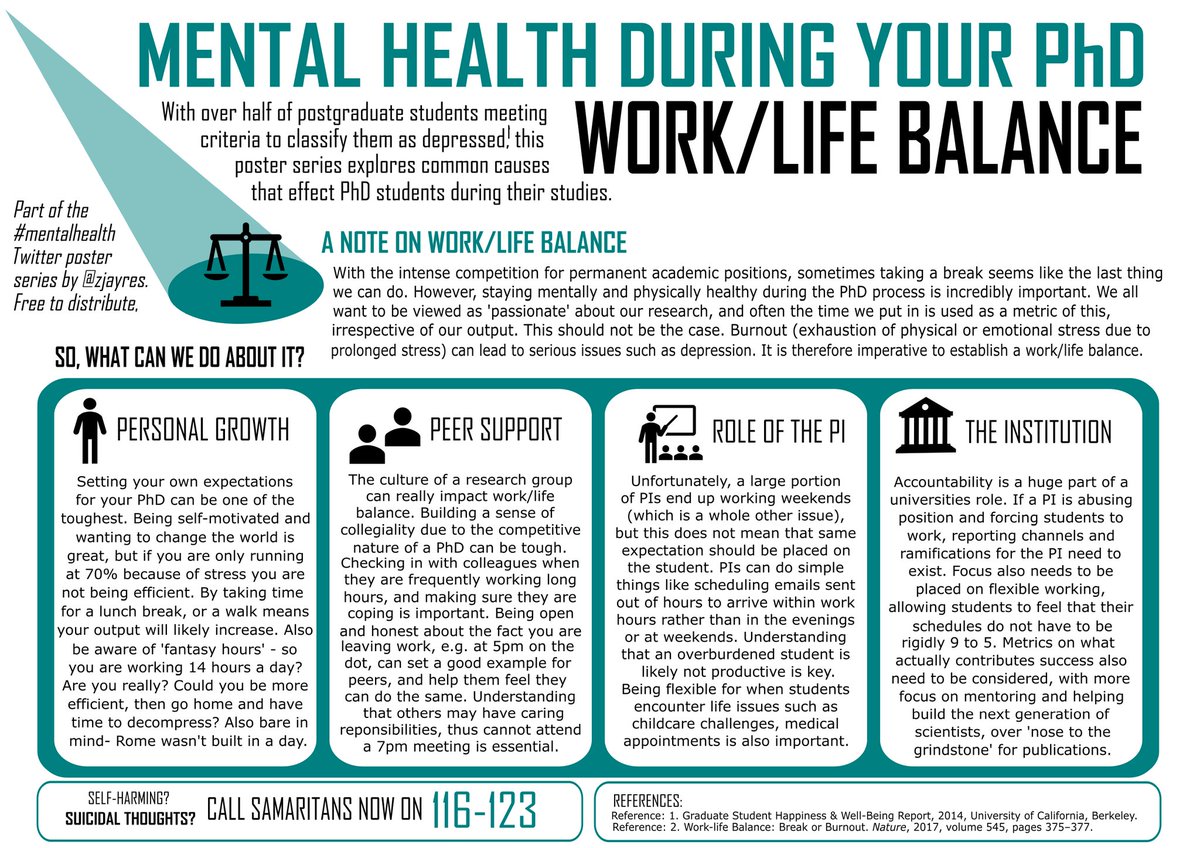
(9) By no means definitive, this poster looks at possible stressors during #undergrad studies that can impact #mentalhealth. Know that support is out there for you. 
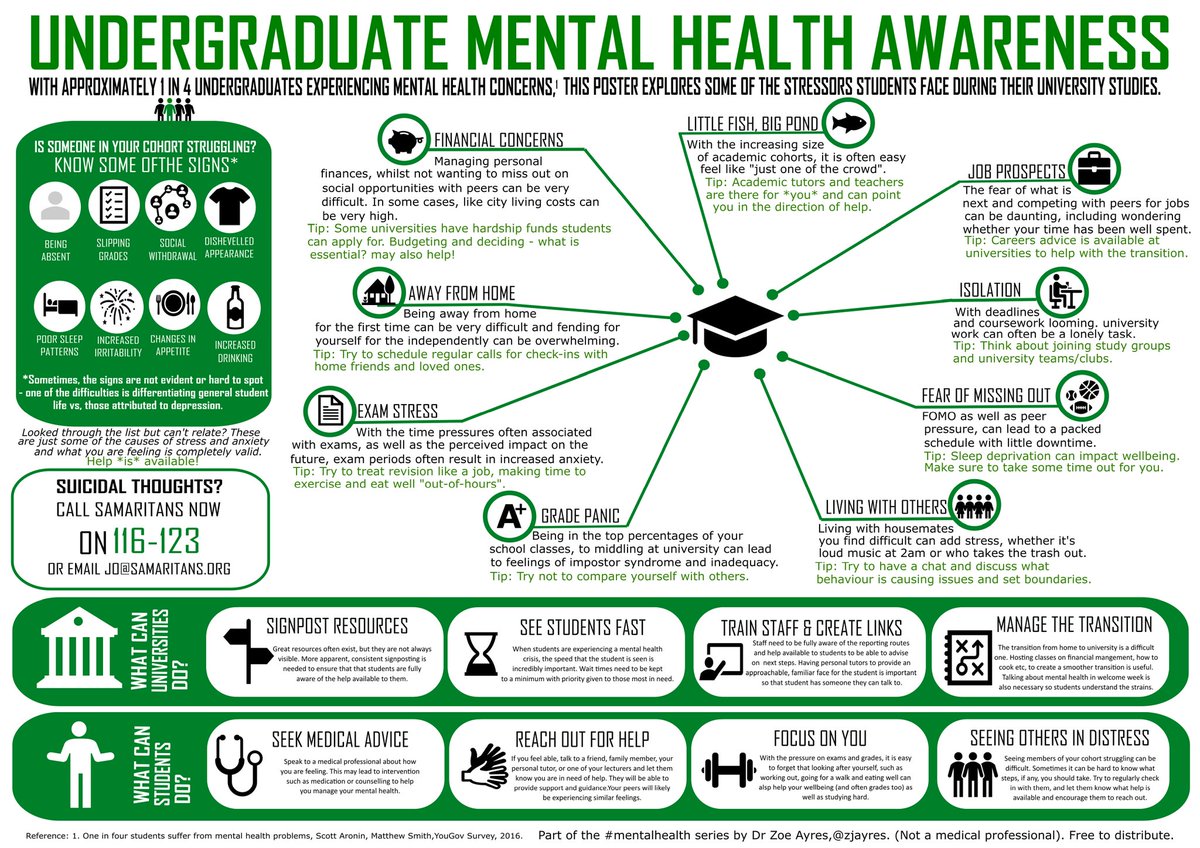
• • •
Missing some Tweet in this thread? You can try to
force a refresh



